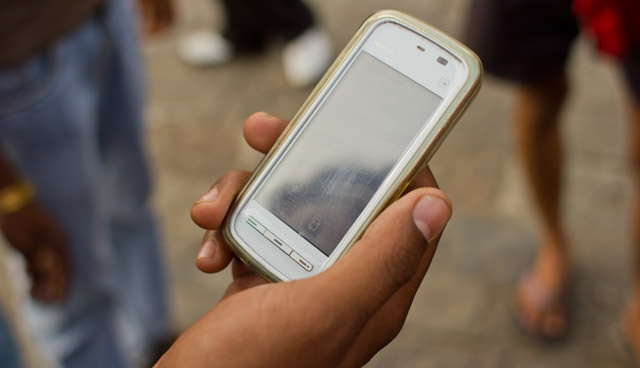
Despite the importance of the Internet to contemporary society, according to the International Telecommunication Union only 42% of the world’s population is online. That leaves 4,3bn people without the Internet, of which 90% live in the developing world. African, Asian and Latin American nations have some of the world’s lowest rates of Internet use, where barriers include affordability, lack of infrastructure, perceived lack of need and linguistic barriers.
Historically, world Internet use has grown around 2%-3% every year. If this slow trend is to continue, then the information society will be a highly divided one for many more years to come. Those who are connected will continue to enjoy the benefits provided by the Internet in terms of better access to healthcare, employment, knowledge and a more connected society, while the disconnected are left out. It’s vital that we speed up this growth — lack of Internet access has been recognised as a universal problem with the United Nations declaring access to the Internet a human right.
Aware of their need to provide social benefits (“corporate social responsibility”) but also of the untapped market potential of emerging economies, firms such as Google and Facebook have tried their luck in providing affordable Internet connectivity to developing regions by partnering with mobile phone operators in those countries.
Facebook launched its Internet.org campaign in 2013 with the mantra to “connect the next 3bn”. In fact Facebook has been establishing zero-rated platforms since 2010 (an initiative that was launched well before the Internet.org initiative) in several countries in Africa. It is now venturing into Latin American markets with a zero-rated service in Colombia. In other words, users can access Facebook and a few other select services — and only these — for free, without any network data usage charges.
The telecoms companies see this as an opportunity to attract potential customers, who may have shied away from taking up a data plan, and who discover the benefits and sign up. Internet firms such as Facebook and Google funnel further customers through their advertising-driven Web platforms.
Facebook’s free-access package includes some other useful services such as news, jobs and health information. But although it may be a good first step to bring the Internet to those who cannot afford it, there are still doubts on whether it’s useful, or even fair.
The benefits are debatable, considering free access is limited to certain services that are part of Facebook’s “walled garden”, where it can monetise the new arrivals to the Internet. Yet Facebook itself is filled with links to off-site content that would require users to step outside and so start racking up data charges.
There is also the question of whether it is possible for any service provider to opt-in to being part of this free access ecosystem. If Facebook is managing the ecosystem alone, then it can demand strict conditions for those that join — if it allows it at all. There is growing scepticism of whether zero-rated platforms like this, run by a single organisation or single group, are the right approach to solving the problem of rolling out affordable Internet access.
Other criticisms come from network neutrality purists, who believe that all Internet traffic should be treated equally. Their concern is that network operators prioritising certain applications or services could provide an unfair market advantage to larger service providers, while shutting out smaller firms. It’s certainly the case that this applies to the Internet economies in the West, but it’s yet to be seen whether the same goes for emerging economies where there is little local competition in the first place.
If anything, these economies suffer from local monopolies or oligopolies and a lack of competition — a main reason for inflated Internet access costs. Providing a means for new firms to enter the market in a fair manner can create the right environment leading to reduced costs — but this requires a better regulatory environment.
Irrespective of any criticism, Facebook seems to have struck a chord — reaching 100m Facebook users a month across Africa, 80% of whom access the Internet via their mobile. It’s far from perfect, but it’s working.![]()
- Arjuna Sathiaseelan is senior research associate at Cambridge University
- This article was originally published on The Conversation




